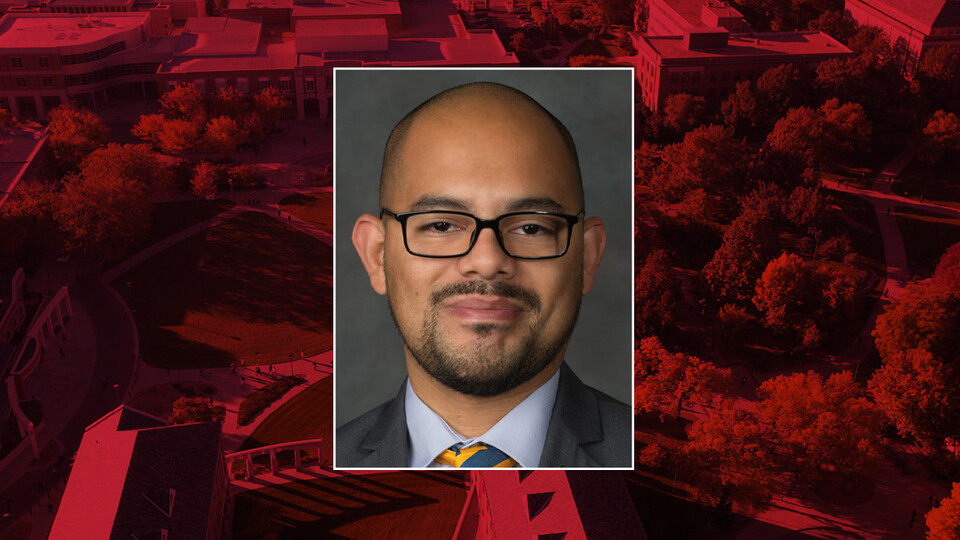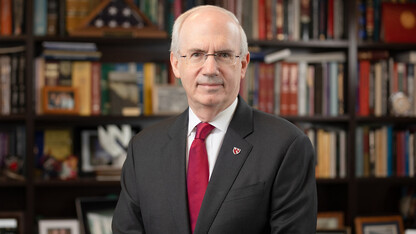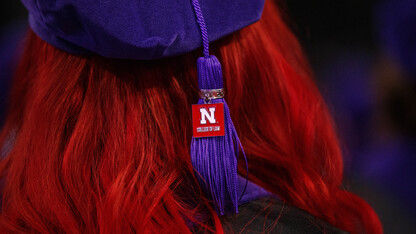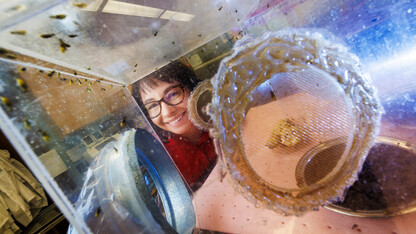· 4 min read
Chaves pays it forward through mentorship

Byron Chaves experienced outstanding mentorship throughout his education. Now, he’s paying it forward as a mentor for undergraduate and graduate students in his microbial food safety lab at the University of Nebraska–Lincoln.
“The best part of my job is mentoring and interacting with students,” said Chaves, assistant professor in food science and technology and applied food safety specialist. “I love seeing the students’ accomplishments and hearing about their stories. If I have played even a minimal part in making some of our students successful, then I think that’s awesome. Seeing my students succeed when they leave my lab and get jobs and go into the world is very rewarding.”
Over the past two years, Chaves mentored an undergraduate toward his goal of going to graduate school for food safety microbiology. He helped the student choose the right courses, gain research experiences and develop skills such as time management and oral communication. Now, the student will attend graduate school at Texas A&M University. Chaves hopes that he helped the student not only reach his graduate school goal, but helped him develop skills that will last a lifetime.
In addition to undergraduates, Chaves typically mentors a handful of graduate students. This includes Carmen Cano Roca, who successfully defended her thesis and graduated with a doctorate in food science and technology in May.
“Dr. Chaves has been a great mentor during my Ph.D. journey,” Cano Roca said. “He’s helped me develop into a better scientist by providing opportunities to carry out applied research with local industry and other scientists. He has supported my professional development by encouraging me to apply for opportunities and promoting my engagement with the community. These skills and networking will be great for my future career.”
Chaves has been a mentor at the university for almost five years through his three-way appointment as researcher, professor and extension specialist. He was recently awarded the Holling Family Award for Inclusive Excellence in Teaching and Learning, recognizing efforts to advance diversity, equity and inclusion across the department, college and university community.
Originally from Costa Rica, Chaves’ passion for food safety science led him to Nebraska.
Chaves originally planned to major in chemical engineering at the University of Costa Rica. Through a university career fair, he discovered food technology and engineering, which to him was the intersection of biology and engineering. It was through that program that he discovered his passion for food microbiology.
When studying for his food microbiology exam as a junior, Chaves had an epiphany. While he had developed a great interest in food rheology, he realized he was fascinated by the biology of microorganisms, as well as the broad application potential for food microbes, from fermentation to spoilage. Ultimately, he decided to study the ones that make people sick.
Clemson University recruited Chaves from Costa Rica for his master’s degree in food science with a concentration in food safety and a minor in experimental statistics. When researching doctoral programs, Chaves met his future adviser at Texas Tech and knew it would be a great fit. In Texas, he studied how Salmonella in pathogenic E. coli was distributed in the meat supply chain in Mexico and Central America, before graduating with a doctorate in food safety microbiology.
After earning his degree, Chaves worked in consulting in Philadelphia before being drawn to Nebraska U’s top-notch food science facilities and departmental reputation.
As an extension specialist, Chaves works with Nebraska food manufacturers to provide training and technical assistance in food safety, sanitation, regulatory compliance, environmental monitoring and more. As a professor, he teaches a core food science course and a couple of graduate-level applied microbiology courses.
In the lab, Chaves focuses on solving real-world problems. He studies risk mitigation for foodborne pathogens in foods of animal origin and in the processing environment. Funded in part by the U.S. Department of Agriculture’s National Institute for Food and Agriculture and his startup funds from the university, he works directly with industry members and stakeholders to develop solutions that will result in fewer people getting sick.
“The reality is that thousands of people die every year from foodborne illness,” Chaves said. “We work under the premise that foodborne illness is entirely preventable. To prevent illness, we have to implement antimicrobial interventions and understand how microbes grow in food. We then have to educate industry and consumers. We’re trying to provide solutions to mitigate the burden on public health and financial costs.”







